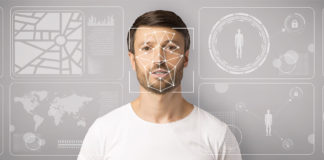Single (and happy)—an increasingly common status in modern society
The number of single individuals has skyrocketed in the past few decades in nearly 40% of the world’s countries. While some complain about the economic discrimination they face, many who have chosen this lifestyle believe they hold a winning ticket in other areas of their lives.
8 signs that show you are an introvert
Detecting an introvert is not as easy as we may think, because sometimes introverts are not shy or silent at all, they take responsibility, work extraordinarily in teams, and can even be skilled public speakers. Yet several traits can unveil the introverted character of an individual.
The Waldenses | The poor of Christ
The “poor of Christ”, the “poor of Lyon” or, simply, the “brothers” never called themselves “Waldenses” until they joined the Reformation. The derisive appellative was given to them by their persecutors, after the name of the man who consolidated the doctrine of the community.
Henry’s domino effect
In his desire to secure an heir to the throne, Henry VIII set off a domino effect that would ultimately change the face of America and the world.
Jim Ayer | Forever a fisherman
Jim Ayer was, for most of his life, a slave to his own dreams—a fisherman of thrills and addictions. From when he was a child, he attached a ball and chain to each ankle, closed himself up in his own world, and threw away the key.
Don’t say I haven’t told you so…
During my adolescence, a Swiss author, Erich von Daniken, made waves with his theories about extra-terrestrial influences on early mankind. His most important book was called Memories of the Future. Of course, his ideas have no support today, but the idiom remains: memories of the future. Something from the past says something about what is to come.
Major religions and their perspectives on cremation
Cremation has been part of the death rituals of various cultures since prehistoric times, but with the advent and spread of Christianity, cremation began to be used less and less. Most Christian denominations see it as a taboo. Let's discover why.
What happens in your body after you quit smoking
Our bodies reap the first benefits of giving up smoking almost immediately after we have ceased the habit. The scientifically proven changes that are visible within the next hours, days, months and even years after we quit smoking reinforce the fact that putting out that last cigarette is one of the best decisions you will ever make for the benefit of personal health.
“All religions are good.” True or false?
Globally there are 19 major religions, divided in turn into 10,000 religious groups. Each group claims to be the holder of the Truth. If one of them really holds the Truth, that means there are about 9,999 false religious groups.
Do you know how much your digital footprint costs? Lessons from a hacker who changed his mind
After I published the analysis regarding the mirage of cryptocurrencies, I received an irresistible invitation: an IT consultant offered to give me a demonstration, in front of the laptop, of the connection between cryptocurrencies and the black market. The exercise turned into a three-hour discussion on cybersecurity and ended with unexpected conclusions about identity theft for political purposes.
An unusual preacher
Mass evangelism “campaigns” have become a common phenomenon in contemporary religious culture. However, few people ask how it all started and what are its long-term effects.
Tangible happiness
It's intuitively inappropriate to talk about happiness when the subject is depression. But it is even more inappropriate to talk about abnormality, inadequacy or maladjustment in the same context.
Consoling faith
I generally don’t like going to funerals, but they come in many different forms and feels. Some seem sadder than others; some feel more hopeful. But often there’s an unexpected bittersweetness. We are all there because of something good—the life, love and relationship that we are there to remember and honour—that has come to a tragic end, always too soon.
When God described Himself, He called Himself “the Word”
Whether you're a practising believer, a casual believer or, conversely, an atheist, you cannot help but be taken aback by the fact that one of the earliest images of God we have in Scripture is an unexpected one for those times: the image of God writing (Exodus 31:18).


























